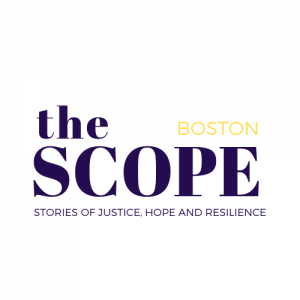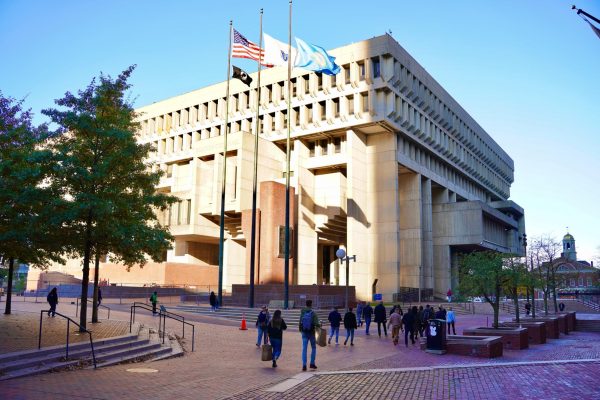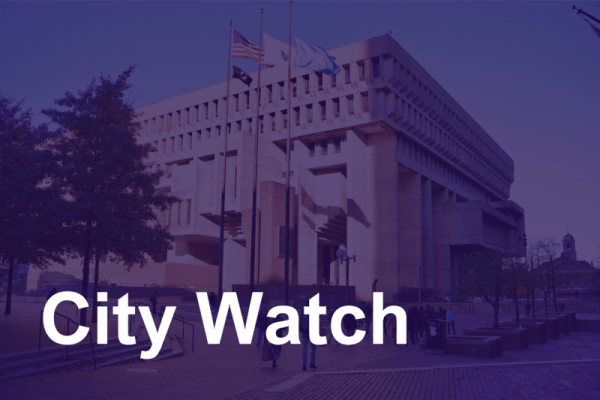City council discusses grants for community gardens, speeding cars and language access for city services
Language accessibility, ethnic studies curriculum and expanding access to nutritional assistance were on the agenda at the Boston City Council meeting via Zoom this Wednesday.
Order authorizing the city of Boston to accept the community garden grant, awarded by TD Bank – Docket #1069
Boston’s community gardens will see increased funding for arts and events in the 2021 and 2022 summer months, thanks to TD Bank. Councilor Matt O’Malley, chair of the committee on environment, sustainability and parks, discussed the $60,000 grant on Wednesday afternoon, and said that it would be used for workshops and art installations encouraging locals to come to the gardens.
The city of Boston has previously been awarded this grant, aimed to help residents build gardening skills and community.
“It’s a wonderful partnership between the Office of New Urban Mechanics and other philanthropic endeavors,” O’Malley said. “It really allows for taking our community gardens and putting some real programming in place. We’re anxious to get that money out to support our parks, especially mid-pandemic.”
The docket was adopted.
Language and communications access for city services – Docket #1041
The order aims to amend the City of Boston Code to expand the current city guidelines on language and communications services — especially translation. The proposed changes mandate that the Office of Language and Communication Access work with the community to develop standards for culturally competent interpretation and translation services, according to Councilor At-Large Michael Flaherty, vice chair of the committee on government operations.
Currently, chapter VI, section 6-10 of the City of Boston Code only mandates that city departments which receive federal funding provide translation services for Spanish, Haitian Creole, Chinese, Vietnamese and Kabardian. The proposed change would expand that list to languages spoken by 5% of the city or 1,000 people, whichever is lesser.
“We heard from a number of folks from the public, particularly around [Boston Public Schools], and how often they feel more confused during or after the meeting than they were when they walked into the meeting,” Flaherty said. “That’s a solvable problem for this body.
The docket’s sponsor, Councilor At-Large Julia Mejia, said that this week’s hearing was to get people familiar with the proposal, and she hopes to move the effort into a working session.
The docket remains in committee.
Hearing on speeding cars as a public health emergency and the need for infrastructure improvements – Docket #1074
Councilor Ed Flynn called for a hearing on speeding cars and unsafe roads, a hearing he calls for every year. The councilor said two residents have been fatally struck by cars in his district of South Boston in recent weeks. Just last week, 23 residents were displaced by four incidents of cars crashing into buildings and light poles.
“In recognizing speeding cars and road safety as a public health emergency, we elevate this issue and provide the urgency to make the infrastructure improvements required to force cars to slow down and address this public health and safety issue,” Flynn said.
Councilor Frank Baker voiced his support, adding that his constituents have made “constant calls for speed bumps and traffic calming measures,” and Councilor Liz Breadon emphasized the need for both pedestrians and bicyclists to be safe on the roads.
The docket was referred to the committee on public health.
Hearing on implementation of ethnic studies curriculum in the Boston Public Schools – Docket #1076
Councilor At-Large Annissa Essaibi-George and City Council President Kim Janey called for a hearing to better understand how the city council body can support the organizing committee Boston Teachers Union (BTU) and their Ethnic Studies Now! committee, which advocates for ethnic studies in Boston Public Schools. The committee’s teachers have developed a pilot ethnic studies curriculum and budget for Boston schools, currently published on the BTU website and awaiting response from Superintendent Brenda Cassellius.
“Learning about ethnic studies is a process for the students as well as the educators, and opens everyone up to the diverse and complex world around us,” Essaibi-George said. “This curriculum requires care and expertise to be done well.”
Councilors Kenzie Bok and Andrea Campbell stressed the importance of implementing this curriculum in all classrooms, not just some. Breadon and Mejia stressed how this could positively impact Boston students and the community as a whole.
“This is again another restorative justice moment for so many students who are sitting in classrooms feeling unseen and unheard for far too long,” Mejia said. “This is such an amazing opportunity for us to right the wrong,”
The docket was assigned to the committee on education.
Urging the Baker administration to close the SNAP Gap – Docket #1077
More than 70,000 Boston residents who are enrolled in MassHealth are likely eligible for SNAP, or the Supplemental Nutrition Assistance Program, said Councilor At-Large Michelle Wu. As Boston has one of the largest municipal “SNAP Gaps” in the state, Wu called on Gov. Charlie Baker to ensure that city residents receive the support they need by streamlining the SNAP application process.
This docket builds on the IT Bond Bill, spearheaded by Sen. Sal DiDomenico and Rep. Jay Livingstone, which addressed this issue at the state level. The bill enables residents to initiate applications for federal SNAP benefits at the same time as they apply for medical assistance, and authorizes the Medicaid office to submit it on residents’ behalf. The bill has passed, but much of the funding remains to be spent.
Wu asked that the council goes on record to support state lawmakers in this initiative at the city level, because Boston’s emergency food distribution network has seen a 64% increase in food assistance during the COVID-19 pandemic.
“The trouble with the bond bill is that you need to get the bond authority in, but then you still need to prevail upon the administration to actually spend it,” Bok said. “I think it’s something that we should all be advocating to the governor and the administration to act on swiftly.”
The docket was adopted.








